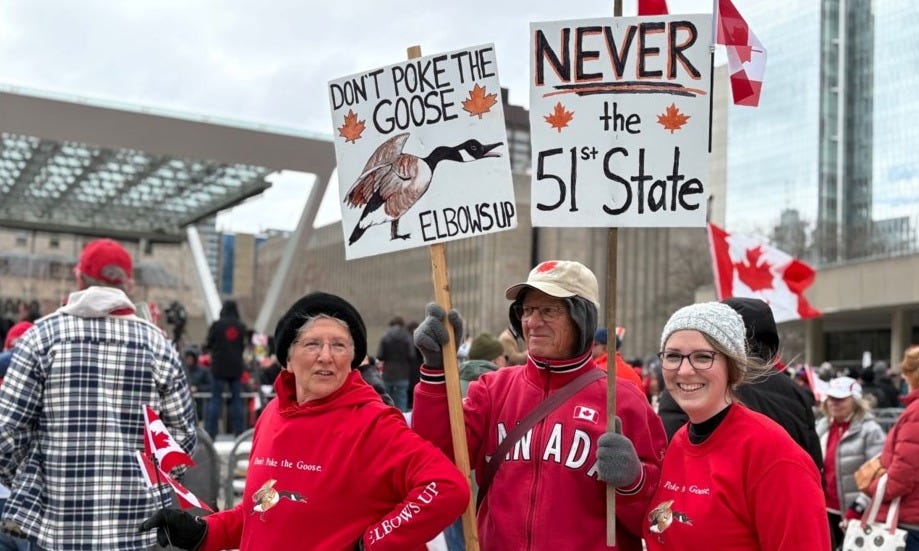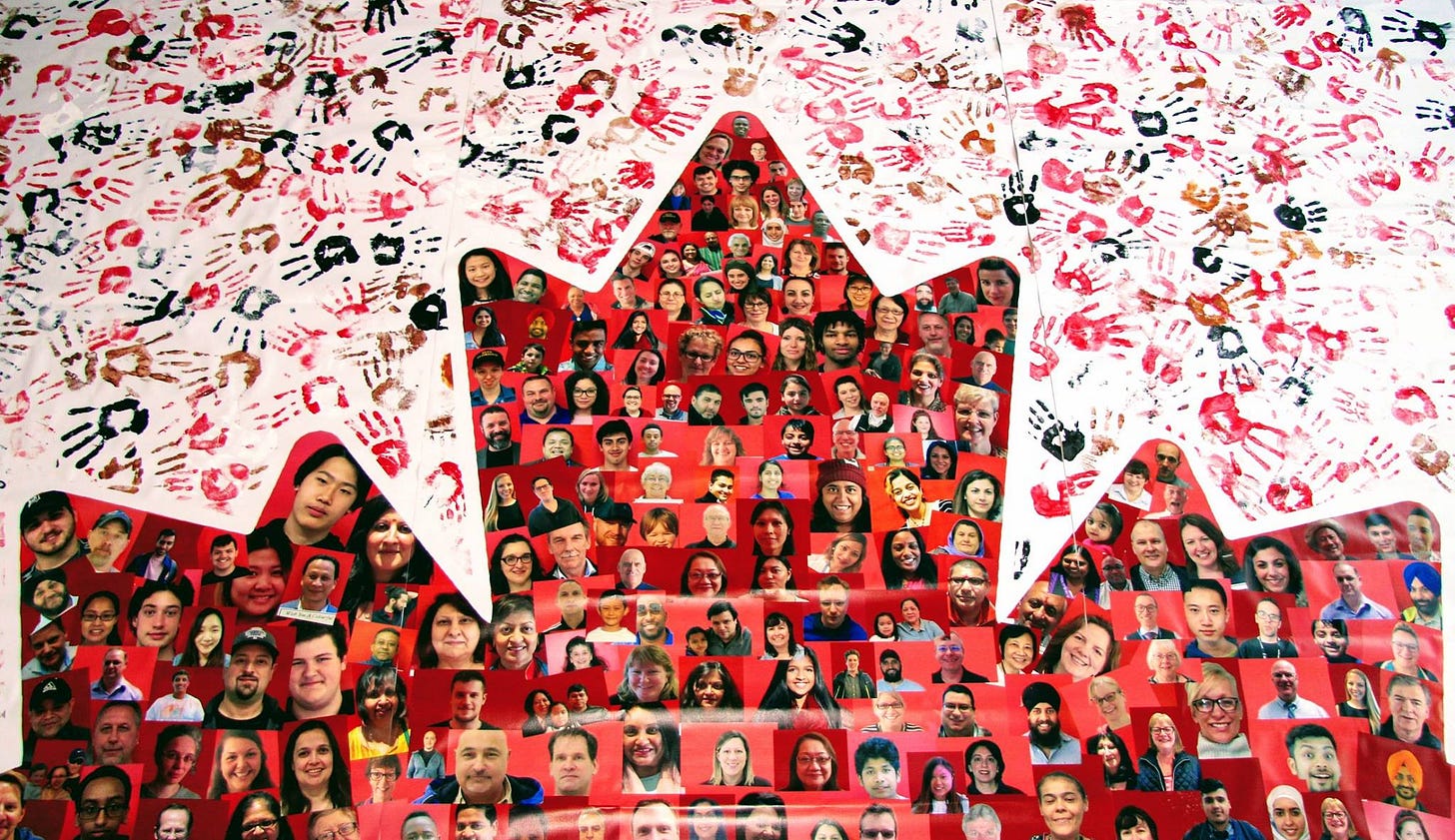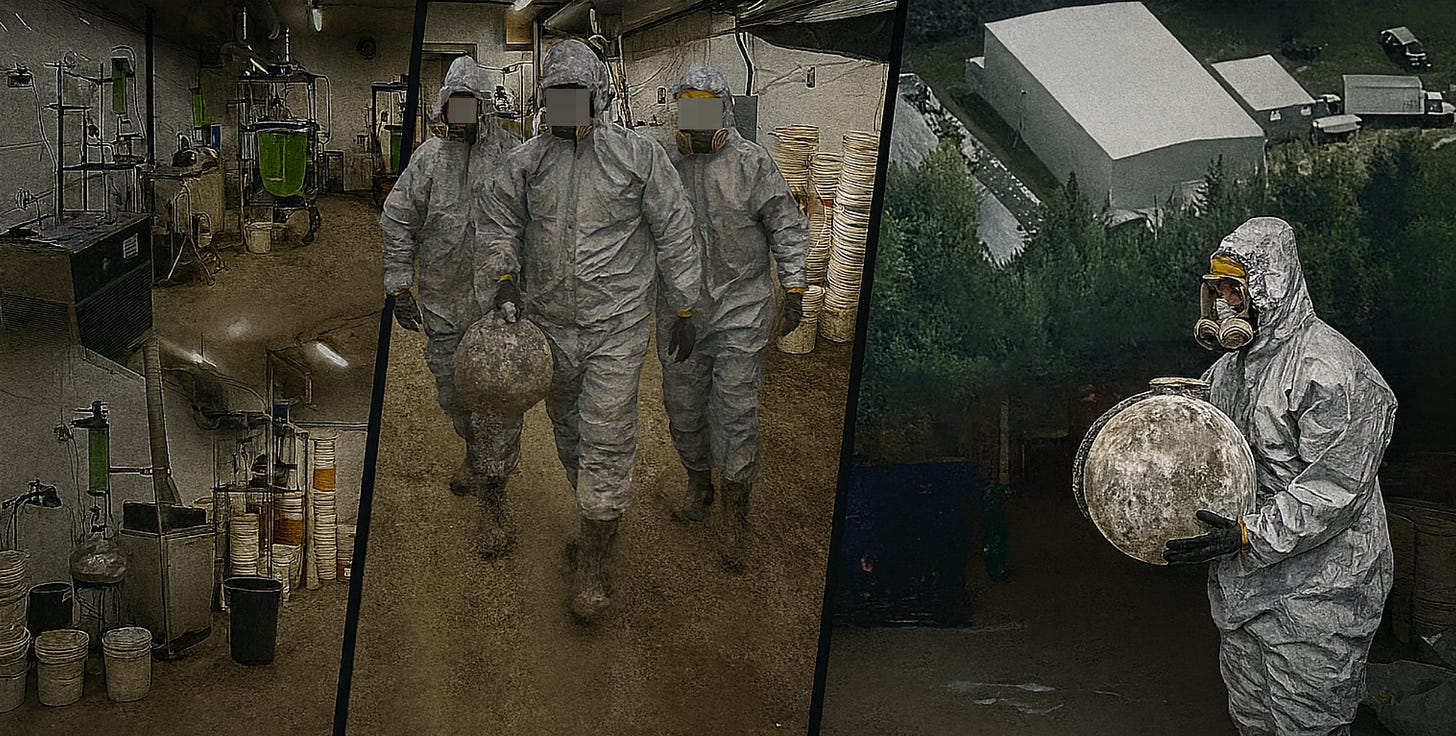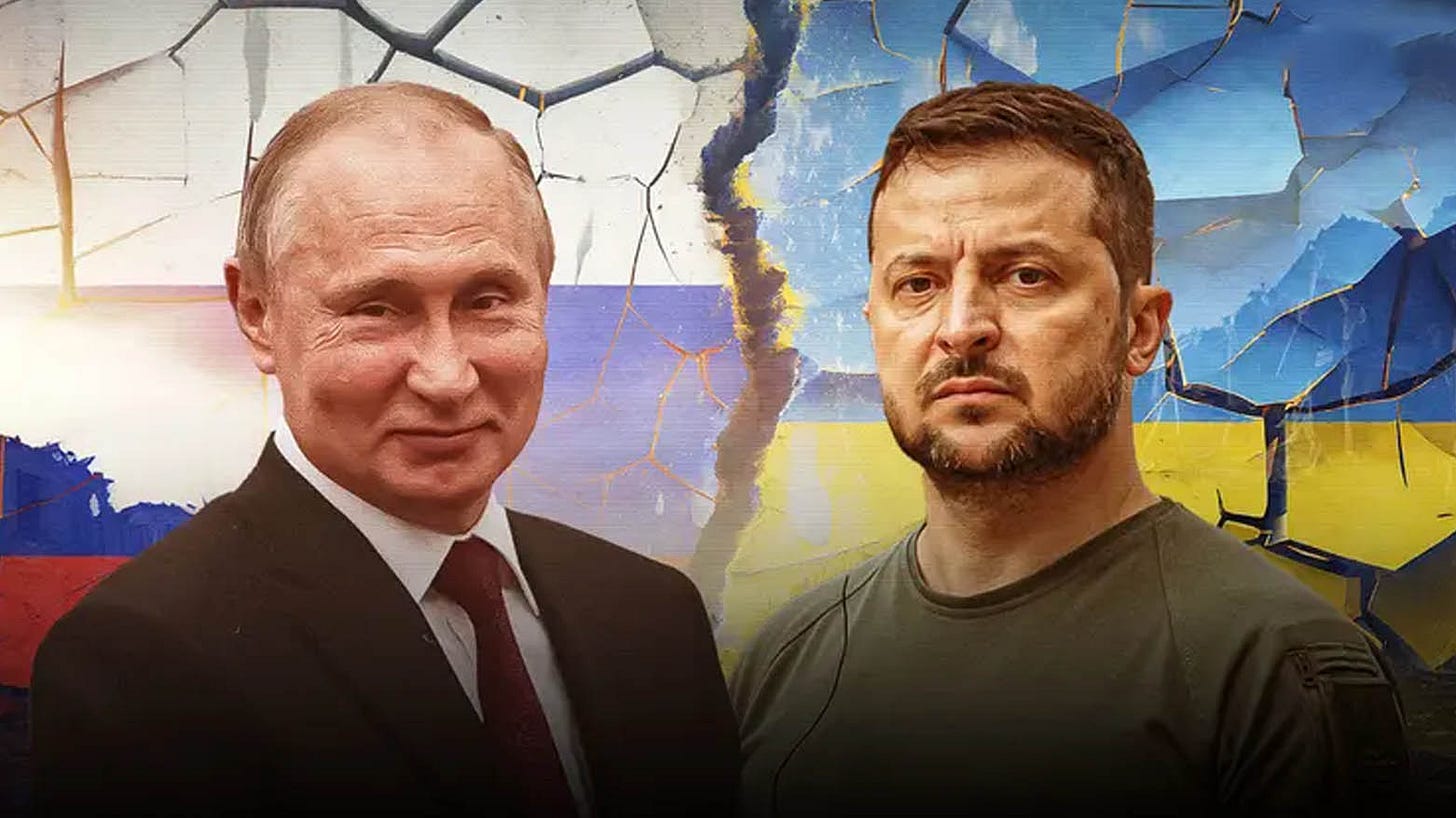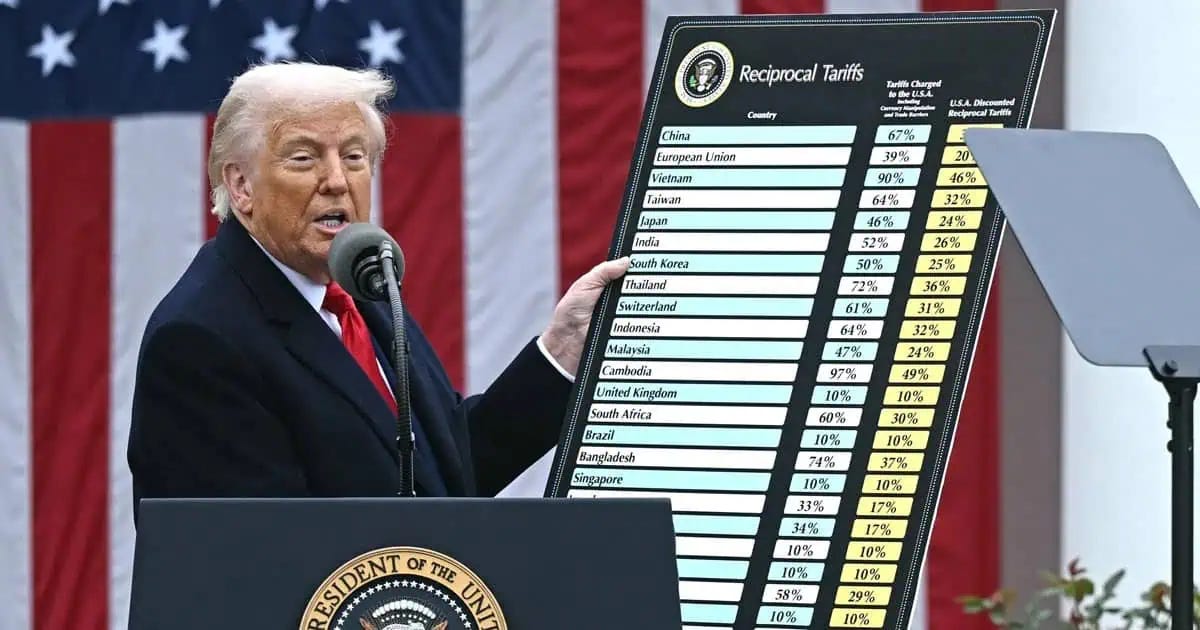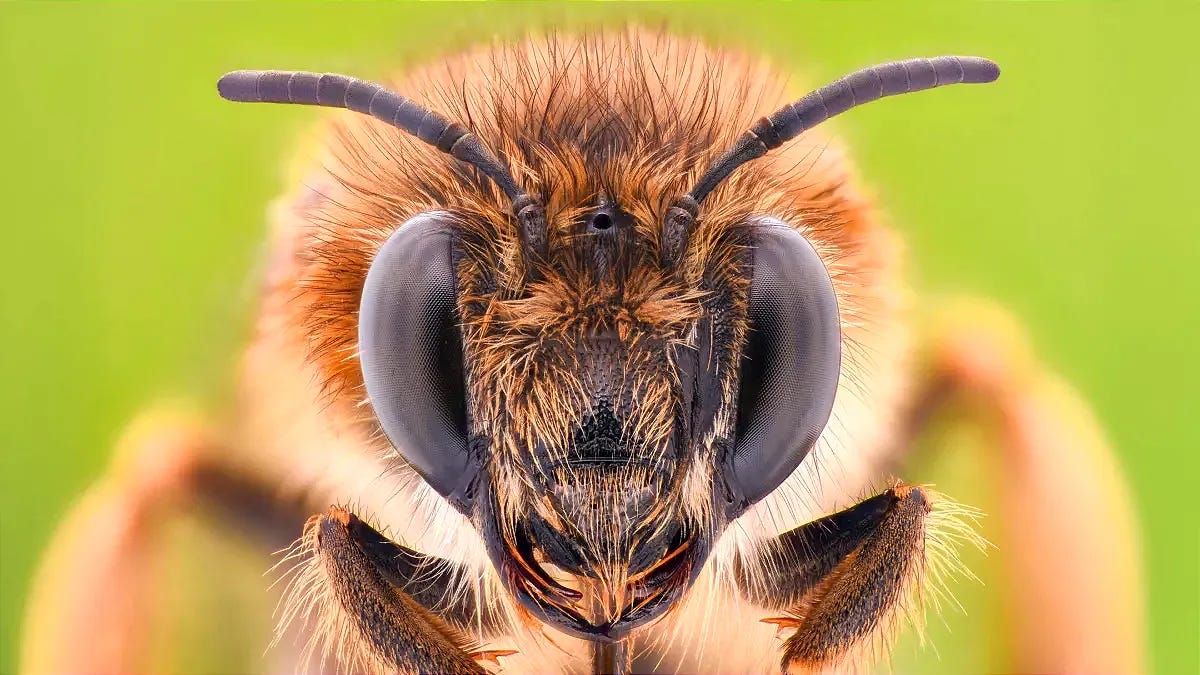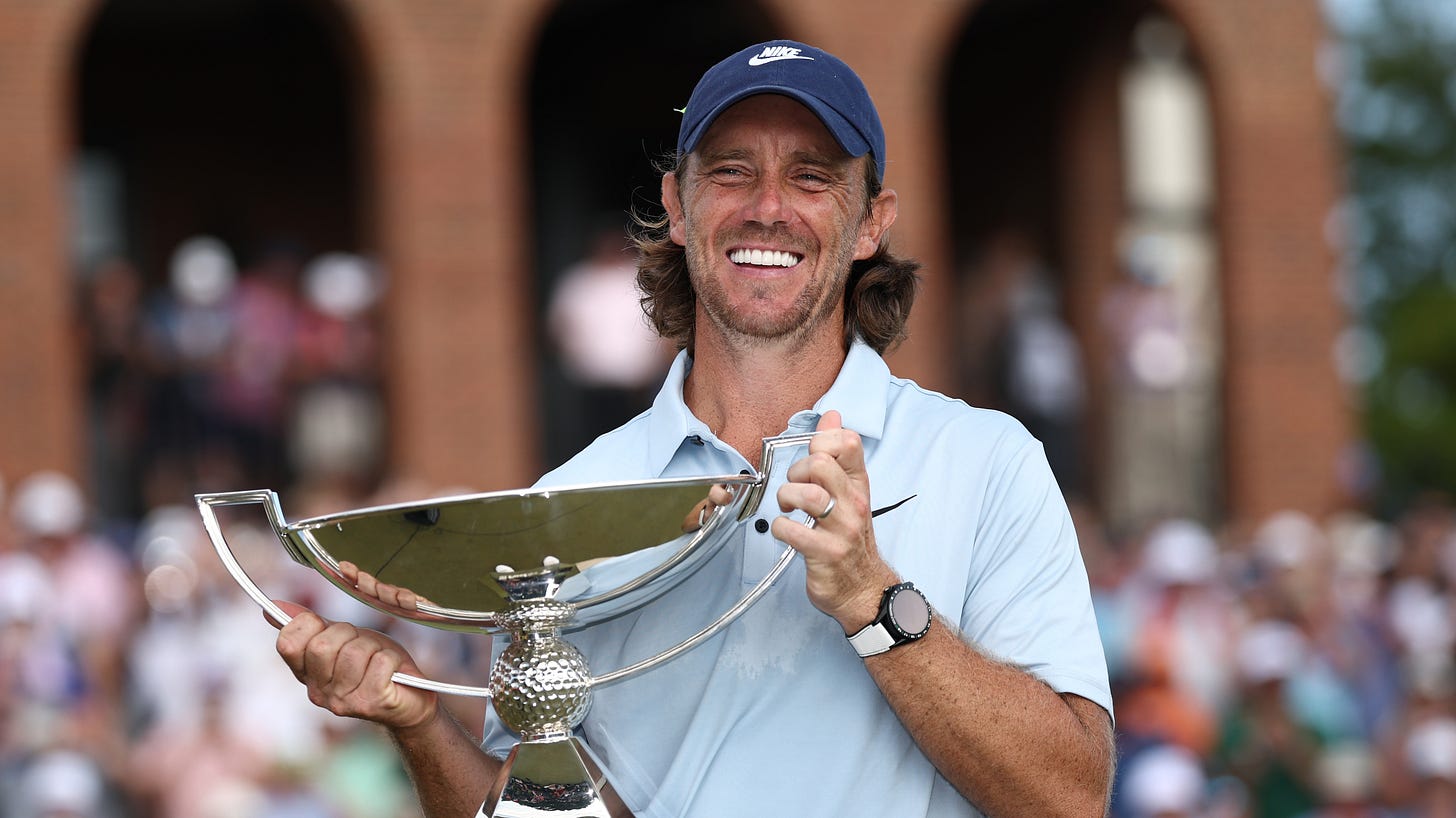Good morning, It’s Monday, August 25th. In today’s news, Mark Carney completely reverses course and bends the knee to Donald Trump, the fractured Canadian dream: multiculturalism, assimilation and the struggle for national cohesion, America warns Canada to clean up or pay the price, Interpol’s Africa blitz nets 1,200 Arrests, $97M in seizures and dismantles human trafficking rings, and much more.
First time reading the daily blend? Sign up here.
The Globe and Mail: “Canadians Can Put Their Elbows Down and Keep Their Heads High”
Right on cue, just moments after Mark Carney completely reversed course and bent the knee to Donald Trump, Canada’s establishment media rushed to tell Canadians they can now “put their elbows down.” The pattern is predictable: when the government blunders, the press cheers; when the government reverses itself, the press demands praise for its wisdom. It’s not journalism—it’s political cheerleading.
The Globe and Mail writes:
“Mark Carney made the right call. By announcing the removal of some Canadian tariffs against U.S. products on Friday.”
For months, anyone pointing out that retaliatory tariffs were dumb political posturing was smeared as unpatriotic or a “MAGA cultist.” Now that Carney has quietly folded, those same voices applaud his courage. They mocked dissenters as traitors, and now pretend they saw the truth all along.
“Canada had to send a signal of its own. With Friday’s announcement that Ottawa would ease the countermeasures to the Trump administration’s so-called ‘fentanyl tariffs.’”
The euphemism here is disgraceful. Canada is not some innocent victim in a trade spat—we are the global hub for organized crime laundering fentanyl profits. “The Vancouver Model” is notorious among law enforcement worldwide. Drug money has flowed through our casinos, into our real estate, and helped price Canadians out of homes, all while fueling a chemical war that has killed tens of thousands. The media’s refusal to confront this reality borders on complicity.
“In the end, however, Canada was the only G7 country to impose countertariffs on the United States. In fact, we were the only country apart from China to have done so.”
Here the Globe quietly admits Canada stood shoulder-to-shoulder with China—America’s chief adversary—while picking a trade fight with our closest ally and largest trading partner. And we’re supposed to applaud this reckless gamble?
“When we plan based on a strategic assumption that’s later proven wrong … there’s no shame in revisiting our strategy.”
This is presented as wisdom, but it’s actually gaslighting. You don’t get credit for admitting failure after ridiculing the very Canadians who had this opinion from the start. Calling it “wisdom” now isn’t noble—it’s an attempt to rewrite history and excuse incompetence.
“The U.S. ambassador to Canada … noted, correctly, that unlike the American fentanyl tariffs, the Canadian retaliatory tariffs didn’t exempt or exclude USMCA-compliant goods.”
So Canada was violating the USMCA, not the United States. Yet the media painted Americans as aggressors while Canada was operating in bad faith. This is deliberate dishonesty.
“There’s no utility in debating how the tariff dispute started, only how it ends.”
Translation: forget who caused the crisis. Just trust us now. The same playbook was used during COVID: sweep aside accountability, declare themselves competent managers, and memory-hole the failures.
“Canada couldn’t afford to maintain costly countermeasures if they undermined our good-faith efforts to preserve the USMCA. Now, we can go into the USMCA review process with clean hands and a clear conscience."”
Do these journalists seriously believe Washington will just forget the posturing, the grandstanding, and Ottawa’s attempts to rally allies against the U.S.? “Clean hands and a clear conscience” is a fantasy only a government stenographer could peddle. Everyone knew from the start that Trump is petty and would seize any chance to embarrass Canada for this blunder. Instead of planning for that reality, our leaders marched us straight into it—and now the press pretends it never could have been foreseen.
“Now that Mr. Carney has removed many of the retaliatory tariffs, Canadians should support him … Nobody wins a tariff war, but Canada would lose a trade war.”
This is the final insult. After campaigning on “standing up to Trump,” after making the situation worse with reckless tariffs, after aligning Canada with China of all countries, Carney is now celebrated for doing the very thing he warned Canadians Pierre Poilievre would do—“cave” to Trump. Yet when Carney does it, the media doesn’t call it weakness; they call it wisdom. They tell us to applaud our Dear Leader for his courage, as though hypocrisy magically transforms into heroism the moment it comes from him.
This isn’t journalism. It’s not even analysis. It’s spin—designed to protect the political class from accountability. Canadians deserve better than gaslighting masquerading as news. Source.
Fracturing the Canadian Dream: Multiculturalism, Assimilation, and the Question of National Cohesion
For decades, Canadians have been told that “multiculturalism is our strength.” It is the mantra of governments, echoed by elites, stitched into the national brand. But a new national poll suggests that this idea may no longer resonate with the public. Behind the polite veneer of official rhetoric, Canadians are questioning whether their country’s cultural experiment is eroding the very foundations of national identity.
The survey, conducted by Research Co. between July 26 and 28, found that 66 percent of Canadians believe immigrants should adopt “Canadian values” if they are to be allowed into the country. Nearly three-quarters (74 percent) of Canadians over 55 insist newcomers must assimilate, compared to just 58 percent of those aged 18 to 34. Only a quarter disagreed.
This demand for cultural integration is striking not because it comes from one side of the political spectrum, but because it cuts across party lines. 71 percent of Liberal voters and 72 percent of Conservative voters agree that immigrants should adopt Canadian values, as do 59 percent of NDP voters—an unusual consensus in a time of deep political polarization.
Yet the most revealing divide comes when Canadians are asked to define what kind of country they want to live in: a “melting pot” of assimilation, or a “mosaic” of preserved cultural differences. The nation splits almost evenly—44 percent in favour of the melting pot, 40 percent the mosaic. Older Canadians and Conservatives lean toward assimilation, younger Canadians and NDP voters toward pluralism. Liberal voters, the architects of multiculturalism, are themselves divided.
This division over identity runs parallel to mounting anxiety about immigration’s scale. Although the federal government trimmed its ambitious intake targets last year, Canadians want deeper cuts: 41 percent say immigration levels should decrease, compared to 34 percent who prefer the status quo and just 16 percent who want an increase. Among older Canadians, that desire for cuts climbs to a majority—51 percent of those 55 and older.
Attitudes toward immigration’s impact mirror this unease. Nationally, Canadians are split: 43 percent call immigration a positive force, 39 percent say it’s negative. But beneath that balance lies a sharp political divide: 55 percent of Liberals and 59 percent of NDP supporters see immigration as beneficial, compared to just 27 percent of Conservatives.
The story here is not a neat narrative of xenophobia or openness—it is the slow unraveling of consensus on what Canada is, and what it should become. For half a century, the multicultural ideal was presented as a national glue. But the poll data show something else: a country divided by age, region, and politics, unsure whether multiculturalism is truly strength or strain.
And so the second, deeper question arises: even if Canadians wanted a unified national culture, is it already too late? Immigration at record levels has transformed cities and demographics at a pace unmatched in Canadian history. Younger Canadians, raised in a multicultural framework, are less likely to demand assimilation. Older Canadians, who remember a more cohesive identity, see it slipping away.
The ship, some argue, may already have sailed. A national identity once loosely tied to shared values, institutions, and traditions now risks dissolving into competing mosaics. The poll numbers suggest Canadians feel this acutely—even if they differ on whether to fight for a return to assimilation, or embrace the pluralism of a fragmented society.
The multicultural consensus that once defined Canada is cracking. Whether the country can salvage a unified identity—or whether it drifts permanently into a post-national experiment—is now one of the most urgent questions facing its future.
America’s Warning to Canada: Clean Up or Pay the Price
Donald Trump’s recent tariffs on Canada are not just a trade maneuver. They reflect a growing frustration in Washington with Ottawa’s unwillingness — or inability — to address its role in the fentanyl crisis that is devastating North America.
The case of the Falkland, B.C. superlab illustrates the problem. In 2022, the U.S. Drug Enforcement Administration warned Canadian authorities about chemical shipments from China tied to Valerian Labs, a Health Canada–licensed company in Vancouver. The RCMP declined to cooperate. For more than a year, no action was taken. Only after the U.S. Treasury sanctioned Valerian Labs and its owner, Bahman Djebelibak, did the RCMP launch an investigation — and even then, it was siloed and information was withheld from American counterparts.
When Canadian police finally raided the site in 2024, they uncovered half a ton of narcotics, 89 firearms, explosives, and the capability to produce 95 million lethal doses of fentanyl. Yet only one suspect has been charged. Former DEA officials have described the episode as a “major disaster” and part of a broader pattern: Canadian agencies slow to act, unwilling to share intelligence, and hamstrung by outdated laws. Much of this detail only came to light through reporting by The Bureau and veteran investigative journalist Sam Cooper, who has long documented how Canada has become a haven for money laundering and cartel-linked networks.
For Washington, this isn’t a minor policing dispute. It is a national security issue. U.S. officials have warned for years that Canada’s weak disclosure rules, lack of RICO-style enterprise laws, and reluctance to collaborate have made it a weak link in the fight against transnational crime. Mexican cartels and Chinese chemical suppliers have exploited those gaps, embedding themselves in Canadian networks while fuelling an epidemic across the continent.
The tariffs imposed on July 31 must be seen in that context. They are not simply about economic leverage, but about signalling a loss of confidence. When the White House stated that “Canada-based drug trafficking organizations maintain robust ‘super labs,’” it was more than rhetoric — it was a blunt assessment of a partner that has failed to keep pace.
The divide between Canada and the United States is not inevitable, but it is deepening. Unless Ottawa reforms its laws, modernizes its policing tools, and restores genuine cooperation with allies, trust will continue to erode. Tariffs may be only the beginning. Source.
Interpol’s Africa Blitz: 1,200 Arrests, $97M Seized, Human Trafficking & Cyber Crime Ring Dismantled
Interpol has carried out one of the largest cybercrime crackdowns in Africa, arresting over 1,200 suspects and disrupting criminal networks spanning Africa, China, and Europe. Dubbed Operation Serengeti 2.0, the two-month sweep dismantled 11,432 malicious online infrastructures, recovered $97.4 million, and identified nearly 88,000 victims of scams, fraud, and ransomware.
Highlights include Angola shutting down 25 illegal crypto mining centers run by Chinese nationals, Zambia dismantling a $300 million fraud network linked to human trafficking and fake passports, and Ghana targeting ransomware groups Bl00dy and RansomHub.
The operation, involving 18 African nations, the UK, and private cybersecurity firms, follows a 2024 Interpol sweep that exposed $193 million in losses. Officials say the scale of cybercrime uncovered this year underscores both the challenge and the need for international cooperation. As Interpol Secretary General Jürgen Stock warned: “Cybercrime knows no borders. Our response must be just as global.” More
Russia Offers Peace Plan: Security Guarantees for Ukraine in Return for Neutrality and NATO Exclusion
Russia is laying out the framework for what it calls a path to peace in Ukraine, conditioned on Kyiv’s neutrality. In an interview with NBC News’ Meet the Press, Foreign Minister Sergei Lavrov said a group of countries—including the five permanent U.N. Security Council members, Germany, Turkey, and possibly others—should guarantee Ukraine’s security if it remains non-aligned with military blocs, non-nuclear, and neutral. Lavrov emphasized that NATO membership for Ukraine is off the table, highlighted the need to protect Russian-speaking populations, and indicated that territorial negotiations are still on the agenda. His comments echo the failed 2022 Istanbul discussions, presenting Russia’s current offer as a combination of security guarantees in exchange for Ukraine abandoning Western military alliances. More
Trudeau's Feminist Foreign Policy Legacy Falters as Canada Falls Short On Women in Peacekeeping - Despite past promises and funding, Canada has reached rock-bottom number for female peacekeepers with just two deployed worldwide. More
PM Carney Visits Ukraine and Says Canada Is ‘Not Excluding Boots on the Ground’ in Possible Security Guarantee - More
Nigeria Deports 50 Chinese Nationals in Major Cybercrime Crackdown - More
Car Bomb and Attack on Helicopter in Colombia Kill at Least 17, Including Police Officers - Both attacks have been attributed to dissidents of the defunct Revolutionary Armed Forces of Colombia, commonly known as FARC. More
The Race for Resources Intensifies as Saudis Pump Billions Into Africa - Saudis need food, critical minerals, a testing ground for new technologies and trade routes, and Africa is opening its doors to Riyadh’s investments. More
CBO: Trump’s Tariffs Could Slash Deficit by $4 Trillion
A new report by the Congressional Budget Office estimates that President Trump’s sweeping tariffs could slash the federal deficit by $4 trillion over the next decade, with $3.3 trillion from added revenue and $700 billion from lower interest costs. This marks a sharp increase from June’s $2.5 trillion projection, as tariff collections surge with average duties now at 16.7%. The move helps offset deficits from the GOP tax-and-spending bill and strengthens Trump’s case that tariffs can drive growth while reining in debt, even as critics warn of trade tensions and legal challenges. More
Canadian Housing Starts Increased in July but Remain Significantly Short of Affordability Needs - Canada needs to increase housing starts to around 480,000 units per year to restore affordability yet remains under 300,000. More
The US Government Has Secured a 10 Percent Stake in Downtrodden Intel for $11.1 Billion - More
Canadians Lost Over $638 Million to Scams and Fraud in 2024, with Cases Nearly Doubling Over the Past Decade - More
How Tiny Bee Brains Could Revolutionize AI
Bees actively use their flight movements to filter and process visual information, letting their tiny brains recognize complex patterns—like flowers or even human faces—with surprising accuracy. A University of Sheffield study recreated this in a digital bee brain, showing how movement generates efficient neural signals that make learning and recognition possible with very few brain cells. The findings suggest future AI and robots could mimic this strategy, using movement to gather information more intelligently instead of relying on huge, power-hungry computer networks. More
Are We Broadcasting Our Location to Alien Civilizations? Our deep space transmissions can be detected up to about 23 light-years away, and aliens would have roughly a 77% chance of catching them during an Earth–Mars alignment, 12% during other planetary alignments, and almost zero otherwise. More
Study: Most of Earth’s Species Came from Explosive Bursts of Evolution -According to a first-of-its-kind study, the majority of Earth’s species stem from a few evolutionary explosions, where new traits or habitats sparked rapid diversification. More
Tommy Fleetwood Finally Has His Moment Winning the Tour Championship, FedEx Cup
After years of near-misses and heartbreak, Tommy Fleetwood finally broke through with his first PGA Tour victory, winning the Tour Championship at East Lake. The 34-year-old Englishman, long celebrated for his Ryder Cup heroics but winless in 163 prior PGA Tour starts, held off Patrick Cantlay and Russell Henley to finish at 18-under. The drama peaked on the 15th hole, where Fleetwood had faltered a day earlier; this time, he steadied himself, avoided disaster, and closed out with three steady pars to claim the $10 million FedEx Cup prize. In a season full of feel-good stories, Fleetwood’s long-awaited triumph stood out—not just for the victory, but for the resilience it took to finally silence doubts and lift a trophy on American soil. More
Cal Raleigh Ties and Then Breaks the Record for Most Home Runs in a Season by a Catcher - With two early dingers in Sunday's game against the Athletics, Raleigh clubbed his 48th and 49th home runs of the season, and made some history. More
Canadian LPGA Star Brooke Henderson Wins at Home in CPKC Women’s Open - Henderson closed with a 4-under 68 at Mississaugua Golf and Country Club to finish at 15-under, winning by one stroke. More
The Menendez Brothers Were Denied Parole—They Have to Wait at Least 18 Months for Their Next Chance - More
Two 10-Year-old Girls Just Defeated Chess Grandmasters on Separate Continents Just Hours Apart
'Holy Grail' Jordan-Bryant Autographed 1/1 Sports Card Sells for a Record $12.9 Million
On This Day In 1609, Galileo Galilei unveiled his first telescope to the lawmakers of Venice, giving them a glimpse of distant ships and the stars above. Among those present was the Doge (ruler) of Venice, Leonardo Donato, who recognized the device’s military and navigational potential—a moment that marked the beginning of Galileo’s rise to fame and forever changed humanity’s view of the heavens.






